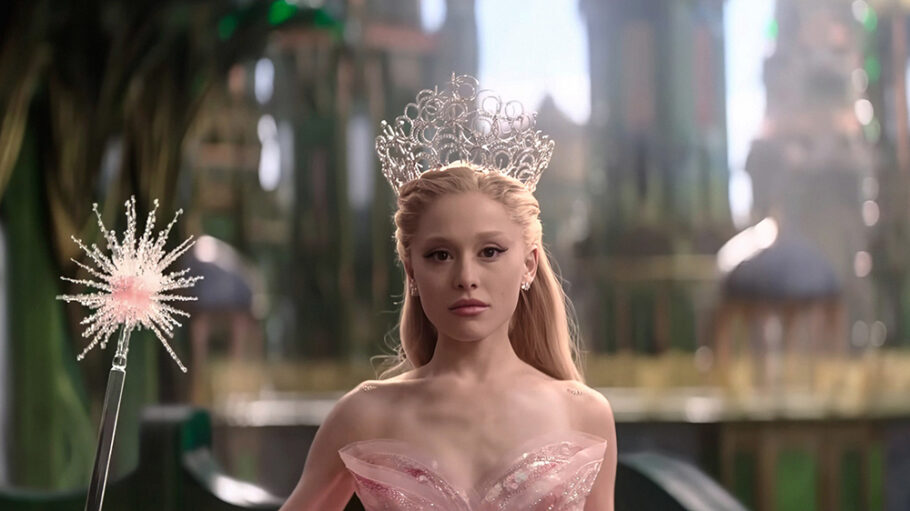More than a few eyebrows were raised around Hollywood when Universal decided to turn “Wicked” into two separate films.
Yes, the stage show has been a sensation on Broadway for decades. But it’s a risk to split any movie in half and count on audiences to return a year or more later for the conclusion. Musicals are already a polarizing genre, and in this case, Universal needed to turn two (!) of them into blockbusters to justify the expensive gamble. After all, the studio spent a combined $300 million on production and roughly $250 million on marketing for 2024’s “Wicked” and the follow-up, “Wicked: For Good.”
Although the Oz dust has yet to settle, it’s clear the financial gambit has paid off. “Wicked” struck a chord with $758 million globally, making the film the highest grossing Broadway adaptation in box office history (for now). That’s to say nothing of riches on premium video-on-demand (where the film earned a mighty $70 million in just its first week) as well as 10 Oscar nominations.
A year later, fans weren’t able to resist Oz’s gravitational pull, returning in force for the epic finale of Elphaba (Cynthia Erivo) and Glinda (Ariana Grande). “Wicked: For Good” was even more popular than its predecessor in terms of opening weekend, collecting a dazzling $147 million domestically and $223 million worldwide. By comparison, the first film opened to $112.5 million domestically and $164 million globally.
“The excitement and energy around this weekend’s opening was tremendous and cut across all categories of cinema-goers: young, old, women and men,” says Sean Gamble, CEO of Cinemark, one of the country’s largest theater chains.
Back in 2022, director Jon M. Chu explained the decision behind the two-parter as a creative necessity, saying the story — which takes place before, during and after the events of “The Wizard of Oz” — was too expansive to be contained to two hours and change. At that point, Universal had been developing the film for nearly 20 years. “It became impossible to wrestle the story of ‘Wicked’ into a single film without doing some real damage to it,” Chu said ahead of production. “We decided to give ourselves a bigger canvas and make not just one ‘Wicked’ movie but two!”
Fans of “Wicked” were concerned because the stage show’s second half is dramatically shorter, darker and less cohesive than Act One, which has most of the songs (“Defying Gravity,” “Popular” and “What Is This Feeling?” among them) that audiences know and love. Critics weren’t as charmed by “For Good,” which scored a 70% on Rotten Tomatoes while the original film earned an 88% average. But audiences remain obsessulated, awarding the second installment an “A” grade on CinemaScore, just like the first. With strong audience scores, goodwill toward the pink-and-green property, and a prime release date ahead of Thanksgiving, “Wicked: For Good” is poised for a long and winding theatrical run.
Love Film & TV?
Get your daily dose of everything happening in music, film and TV in Australia and abroad.
“This was a risk before anyone knew how it would turn out,” says analyst Shawn Robbins, director of movie analytics at Fandango and founder of Box Office Theory. “The first film, which had an incredible fan turnout, was the marketing for the second film. There was no better way to release it.”
Before “Wicked,” Hollywood hadn’t triumphantly adapted a stage show for the screen in over a decade — you have to go back to 2012’s “Les Miserables” ($442 million globally) or 2014’s “Into the Woods” ($212 million) to find a big musical hit. That’s not for lack of trying. Yet recent attempts like Steven Spielberg’s 2021 “West Side Story” remake ($76 million against a $100 million budget), Chu’s 2021 “In the Heights” ($45 million against a $55 million budget), 2021’s “Dear Evan Hansen” ($19 million against $28 million budget), 2019’s “Cats” ($78 million against a $100 million budget) and 2023’s “The Color Purple” ($68 million against $100 million budget) all faltered on the big screen despite being based on popular productions.
“Musicals are challenging to execute,” says Robbins. “In a lot of those cases, they weren’t crowd-pleasers or missed the mark on a creative level. Others were darker and just weren’t suitable to commercial audiences outside of Broadway fans.”
Hollywood has also learned the hard way that splitting a blockbuster into two films doesn’t necessarily double the profits. Director Denis Villeneuve succeeded with 2021’s “Dune: Part One” and 2024’s “Dune Part Two,” which brought Frank Herbert’s sprawling sci-fi novel to the screen to outsized box office results. Otherwise, two-part releases have worked when capping off long-running franchises, like “Harry Potter,” “Twilight” and “The Hunger Games.” In some cases, requiring a second (or third) trip to cinemas for the competed story can feel like a cash grab à la “Mission: Impossible – Dead Reckoning Part Two,” which was renamed to “The Final Reckoning” after “Part One” fizzled at the box office, or Kevin Costner’s four-part “Horizon: An American Saga,” which probably won’t pull off its multi-installment ambitions after the first chapter misfired in theaters.
Universal made good by turning “Wicked” into a leave-the-home-worthy event. For the studio, that involved producing a two-hour NBC musical special “Wicked: One Wonderful Night,” partnering with 400 consumer brands such as Dunkin and American Girl, and promoting the movie in less expected places like on ESPN. An added challenge was needing to keep the musical property in the zeitgeist for two years without wearing out audiences.
“Our marketing department made ‘Wicked’ something you had to see to be part of the excitement,” says Universal’s domestic distribution chief Jim Orr. “That’s not easy to do.”
At this point, Universal executives are humming a similar tune as Glinda in “Wicked: For Good’s” opening sequence: “Who wouldn’t be happier?”
From Variety US































